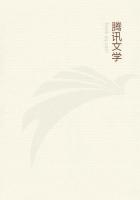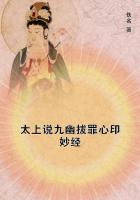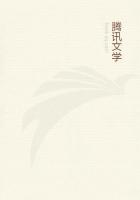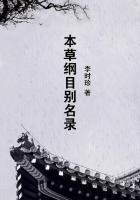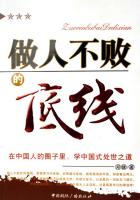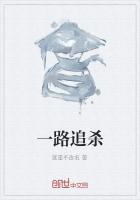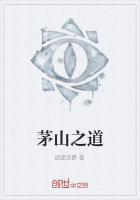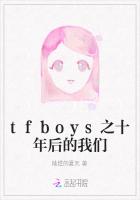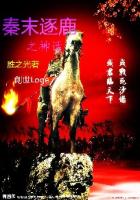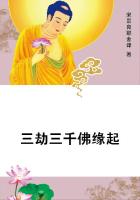With this agree perfectly the judicial sentences of that wonderful faculty in us which we call conscience.A man may use as much art as he likes in order to paint to himself an unlawful act, that he remembers, as an unintentional error, a mere oversight, such as one can never altogether avoid, and therefore as something in which he was carried away by the stream of physical necessity, and thus to make himself out innocent, yet he finds that the advocate who speaks in his favour can by no means silence the accuser within, if only he is conscious that at the time when he did this wrong he was in his senses, that is, in possession of his freedom; and, nevertheless, he accounts for his error from some bad habits, which by gradual neglect of attention he has allowed to grow upon him to such a degree that he can regard his error as its natural consequence, although this cannot protect him from the blame and reproach which he casts upon himself.This is also the ground of repentance for a long past action at every recollection of it; a painful feeling produced by the moral sentiment, and which is practically void in so far as it cannot serve to undo what has been done.(Hence Priestley, as a true and consistent fatalist, declares it absurd, and he deserves to be commended for this candour more than those who, while they maintain the mechanism of the will in fact, and its freedom in words only, yet wish it to be thought that they include it in their system of compromise, although they do not explain the possibility of such moral imputation.) But the pain is quite legitimate, because when the law of our intelligible [supersensible] existence (the moral law) is in question, reason recognizes no distinction of time, and only asks whether the event belongs to me, as my act, and then always morally connects the same feeling with it, whether it has happened just now or long ago.For in reference to the supersensible consciousness of its existence (i.e., freedom) the life of sense is but a single phenomenon, which, inasmuch as it contains merely manifestations of the mental disposition with regard to the moral law (i.e., of the character), must be judged not according to the physical necessity that belongs to it as phenomenon, but according to the absolute spontaneity of freedom.It may therefore be admitted that, if it were possible to have so profound an insight into a man's mental character as shown by internal as well as external actions as to know all its motives, even the smallest, and likewise all the external occasions that can influence them, we could calculate a man's conduct for the future with as great certainty as a lunar or solar eclipse; and nevertheless we may maintain that the man is free.In fact, if we were capable of a further glance, namely, an intellectual intuition of the same subject (which indeed is not granted to us, and instead of it we have only the rational concept), then we should perceive that this whole chain of appearances in regard to all that concerns the moral laws depends on the spontaneity of the subject as a thing in itself, of the determination of which no physical explanation can be given.In default of this intuition, the moral law assures us of this distinction between the relation of our actions as appearance to our sensible nature, and the relation of this sensible nature to the supersensible substratum in us.In this view, which is natural to our reason, though inexplicable, we can also justify some judgements which we passed with all conscientiousness, and which yet at first sight seem quite opposed to all equity.There are cases in which men, even with the same education which has been profitable to others, yet show such early depravity, and so continue to progress in it to years of manhood, that they are thought to be born villains, and their character altogether incapable of improvement; and nevertheless they are judged for what they do or leave undone, they are reproached for their faults as guilty; nay, they themselves (the children) regard these reproaches as well founded, exactly as if in spite of the hopeless natural quality of mind ascribed to them, they remained just as responsible as any other man.This could not happen if we did not suppose that whatever springs from a man's choice (as every action intentionally performed undoubtedly does) has as its foundation a free causality, which from early youth expresses its character in its manifestations (i.e., actions).These, on account of the uniformity of conduct, exhibit a natural connection, which however does not make the vicious quality of the will necessary, but on the contrary, is the consequence of the evil principles voluntarily adopted and unchangeable, which only make it so much the more culpable and deserving of punishment.There still remains a difficulty in the combination of freedom with the mechanism of nature in a being belonging to the world of sense; a difficulty which, even after all the foregoing is admitted, threatens freedom with complete destruction.But with this danger there is also a circumstance that offers hope of an issue still favourable to freedom; namely, that the same difficulty presses much more strongly (in fact as we shall presently see, presses only) on the system that holds the existence determinable in time and space to be the existence of things in themselves; it does not therefore oblige us to give up our capital supposition of the ideality of time as a mere form of sensible intuition, and consequently as a mere manner of representation which is proper to the subject as belonging to the world of sense; and therefore it only requires that this view be reconciled with this idea.
同类推荐
热门推荐
邪神重生:逆天魔法师
作为“邪神”组织的天字号杀手邪神,被同组盟友杀害重生,怎么会到一个没爹疼没妈爱的废材大小姐身上。好吧,看她的逆天崛起。灵术?姐是5000年前唯一一个魔法师大人的转世好不好,被说成灵术是不是太伤自尊了。驯兽?你说的是一招手就有一撮灵兽忘怀里钻的技能吗?神兽精灵?原来刚转世后面跟着的跟屁虫叫这个。看废材变天才,凤凰的新生崛起!废材翻身之狂傲三小姐
杀手穿为软弱将军之女,从此她不再是她。姨娘伪善?撕烂你的美人画皮面,让大家看你到底是什么货色?庶姐狠毒?划画你们的脸打断你们手脚,让你们见识下什么才是狠毒。老爹无情?割袍断义,再招惹我我同样灭了你。一道圣旨,嫁给当朝传闻会吃人喝血的“病”王。吃血抽骨的“病”王?不碍着本姑娘,本姑娘也绝不给你添堵。只想安心治好久病的娘的病,却无意卷入一场风波,她扑倒了他,肚中因此多了球。他,神秘组织的头头,阴冷邪肆杀人如麻却惟独对她一见倾心。可谁知道某男满心欢喜盼来的新婚夜,某女竟带球跑路……【情节虚构,请勿模仿】秦末逐鹿之神话
简介:2000多年前,随着始皇暴毙,农民起义,辉煌的大秦帝国土崩瓦解,留下千古遗恨;37个甲子后,循着神奇密码,穿越秦末,历史车轮为他渐离轨道,谱写一段神话。血染征袍透甲红,霸王安敢与争锋。泗水无赖小亭长,长恨无处逞英雄。金戈铁马美人泪,霜叶北风征夫愁。席卷九州缝山河,当属巴蜀真蛟龙。星宿密码,紫薇星辰,千古秘密,都随战神李胜的横空出世被揭开神秘面纱。现代的高才生,秦末的纨绔贵族,李胜为自己代言,阔斧变革,铁血征伐,一切只为活得潇洒自在。刘邦、项羽难以望其项背,张良、李斯看不透他,范曾、萧何畏惧他,飞扬跋扈为谁雄,他就是真蛟龙。人生苦短,一转身就是一辈子;天方夜谭,一遐想就是一片新天地

